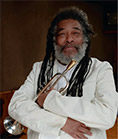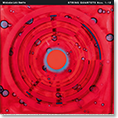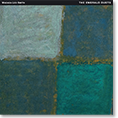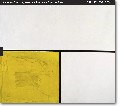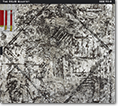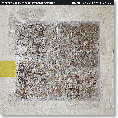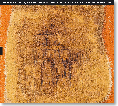THE MUSIC - PRAYER FOR PEACE
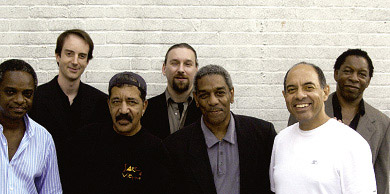
Only Time Will Tell (Stuff Smith) is Billy Bang´s dedication to its composer, Stuff
Smith. A version of this composition was already included on the 1992 recording
that Billy Bang made with Sun Ra on piano and synthesizers, John Ore on bass
and Andrew Cyrille on drums, A Tribute To Stuff Smith (Soul Note). It has since become a part of Bang´s repertoire
undergoing constant change and further development. Stuff Smith and his playing
have been the subject of a life-long study for Bang who feels that Smith was a
forerunner in introducing the true spirit, swing and rawness of jazz into his
playing of the violin, an instrument rarely used in jazz before his time. Just
like Bang studied three saxophonists important to him, Eric Dolphy, Jackie
McLean and John Coltrane, in developing his own playing style, Stuff Smith
studied the trumpet playing of Louis Armstrong and emulated Armstrong´s phraseology
in developing his bowing technique.
At Play in the Fields of the Lord (Billy Bang) derives its title from the 1991 movie directed by
Hector Babenco. The movie, in turn, was an adaptation of the 1969 novel with the
same name by Peter Matthiessen, which describes the trials of an American
missionary family with the Niaruna tribe in the Brazilian Amazon river basin. Although
Bang´s composition predated his familiarity with the movie and the novel, he felt
that the composition perfectly reflected the feeling and the rhythm of the movie.
Dance of the Manakin (Billy Bang) was created with this particular recording in mind.
The title refers to manakins, which are a family of bird species in the
subtropical and tropical mainland of Central and South America. In order to
attract the females, these jungle-dwelling birds use their wings in a dance
that produces remarkable rhythmic buzzes and hums, which are said to resemble
the sound of the violin. Bang was inspired to write the composition after
reading an article about the manakins given to him by Maria Avias.
Prayer for Peace (Billy
Bang) was also composed shortly before this recording. The first fully-realized
performance of the composition was in New York City in connection with a Peace
Day organized in remembrance of the bombing of Hiroshima. That particular
performance was also the first time that trumpeter James Zollar was featured
with the Billy Bang Group. Previously, Bang had attended and also performed in
Japan at the 50th Anniversary of the Hiroshima bombing, an event
that made a strong impression on Bang and strengthened further his anti-war
resolve.
Chan Chan (Compay
Segundo) has become known to the broader audiences as the first song to be
heard on Buena Vista Social Club, the hugely
popular documentary film and album that introduced international audiences to the
traditional forms of Cuban music and some of its performers. Its composer,
Compay Segundo, has said that Chan Chan came to
him in a dream. He has recalled how, one day, he woke up listening to the four
central notes of the song and then combined them with a lyric inspired by a
children´s tale from his childhood, thereby creating what can be called a
modern folk song. Chan Chan was composed in 1987
and was one of Segundo´s last compositions. Billy Bang says that, in addition
to his general love for salsa music that goes back to his childhood in Spanish
Harlem, he has long been drawn to this particular piece, which leaves a lot of
space for creativity. Bang is particularly fond of the composition´s slowness
and its down-to-earth character, which remind him of montuno where you might play a particular piece for an hour or even more
with each different soloist taking turns on the composition that has no particular
beginning or end to it, but rather moves in an eternal circle.
Dark Silhouette (Billy
Bang) was originally titled "Black Herman," in reference to the most prominent
African-American magician (Benjamin Rucker, 1892-1934) performing during the early
part of the 20th century. However, due to an Edward Wilkerson
composition by the same name, Bang renamed his composition as "Dark Silhouette".
The title captures his concept of illusions and shadows, the lightness of the
darkness, that the composition is intended to reflect.
Jupiter´s Future (Billy Bang) is a dedication to the late Sun Ra, the one-time employer and mentor of Billy Bang. The composition was originally created by Bang as a part of a larger Sun Ra project but has since become a part of his standard repertoire. Bang also feels that, in addition to being a dedication to Sun Ra, the composition acknowledges the passing of a tradition from Stuff Smith to Sun Ra, who used to play with Smith, and onwards from Sun Ra to Bang. Bang says that he is particularly fond of this composition because it easily lends itself to various interpretations and also leaves room for different unaccompanied solos thereby changing from performance to performance.

